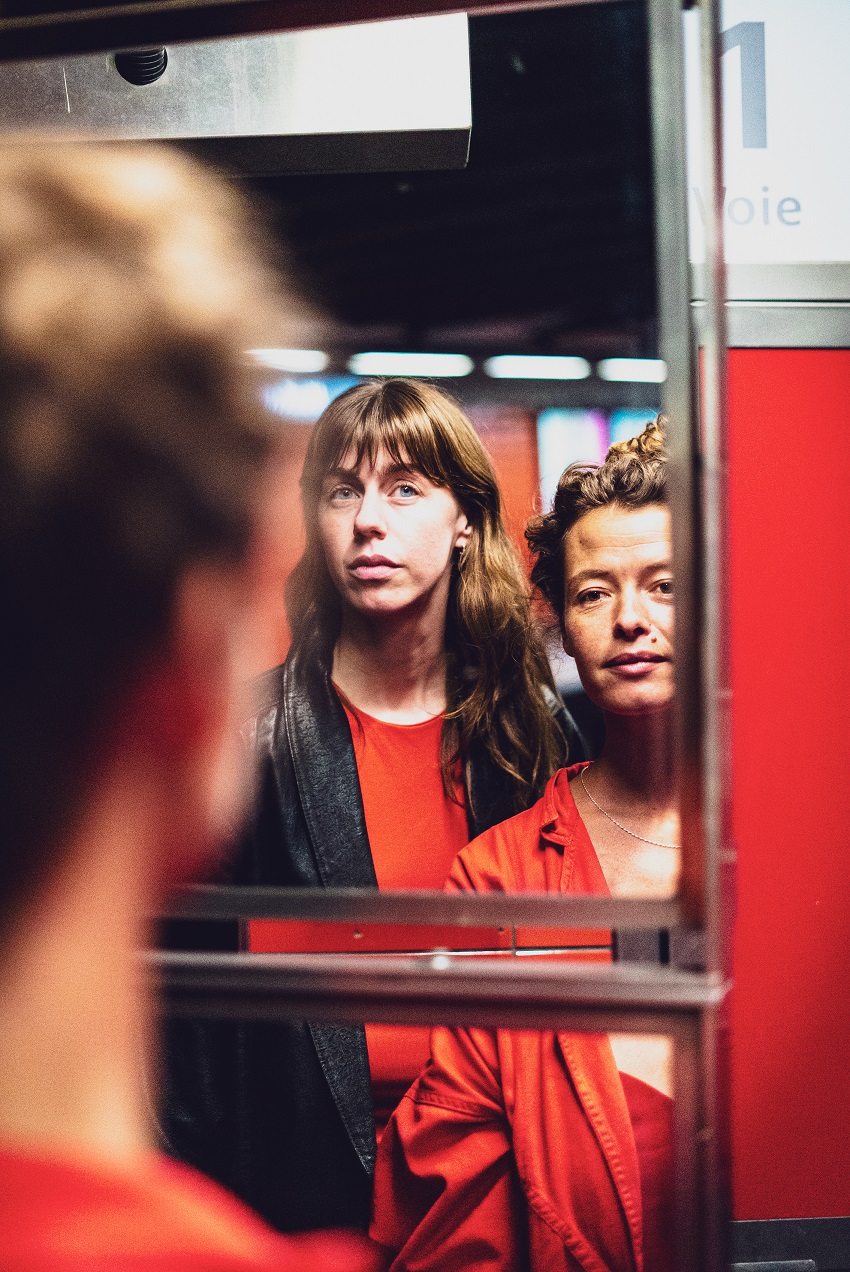

Entrance: 20.00€
Young under 30: 10€ (discount rules)
Price: 5.00€
Marieke Werner (DE): vocals and clarinet
Amber in ‘t Veld (E/NL): vocals, guitar
Just five years ago, the trio Las Lloronas was working on their first album, “Soaked”. Since then, the group has released a second album, “Out of the Blue”, and has played hundreds of concerts in Europe and beyond. The group even won the award for “Best Live Performance” at the Belgian Worldwide Music Awards 2024. With Sura Solomon deciding to take a break to develop other projects, the trio has recently transformed into a duo. German Marieke Werner and Spanish/Dutch Amber in ‘t Veld are already working on new songs, carrying forward the typical ingredients of Las Lloronas: beautiful polyphonic voices, influences from many musical traditions and poetic and powerful lyrics in multiple languages. Las Lloronas seeks depth in simplicity, vitality in emptiness, beauty in rawness, and playfulness in detail. They continue to explore what it means to be human in a world that is so much more than human, and what it means to be Lloronas [Lloronas" is a Spanish word that comes from the verb llorar, which means "to cry." Literally, Lloronas translates to "weeping women" or "weepers." The term is culturally significant in Latin America, particularly in folk legends, where La Llorona is a mythical figure. The legend tells of a ghostly woman who cries for her lost children. In the context of the duo Las Lloronas, the name evokes a connection to deep emotions, a desire to express through music the nuances of pain, vulnerability and beauty of the human experience. Editor's note] in times of overwhelming crisis and pain. Through poetry and sound, they communicate how extraordinary and overwhelming it is to be alive. Music, through emotion, can offer a sense of comfort, connection and beauty: this is the driving force behind their musical research.
“Amber in 't Veld and Marieke Werner brought a deep intimacy and poetic power to their performance, captivating the audience with flawless harmonies and an emotionally intense presence. Their music effortlessly floated between joy and melancholy, creating an atmosphere in which vulnerability seemed to be the most powerful form of expression. We received so much positive feedback – even days after the concert.” (Jokūbas Ragauskas, Noisy Beehive)